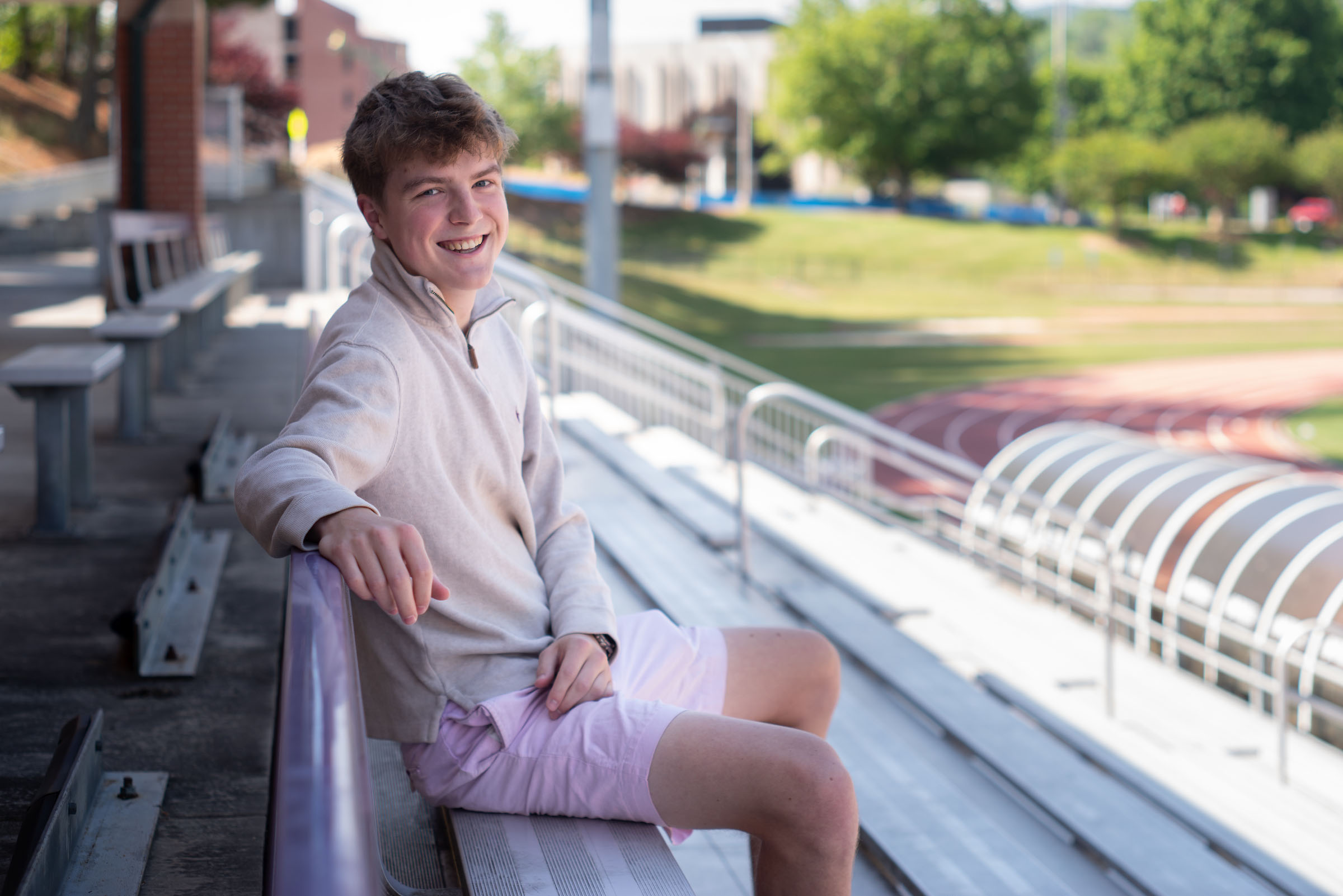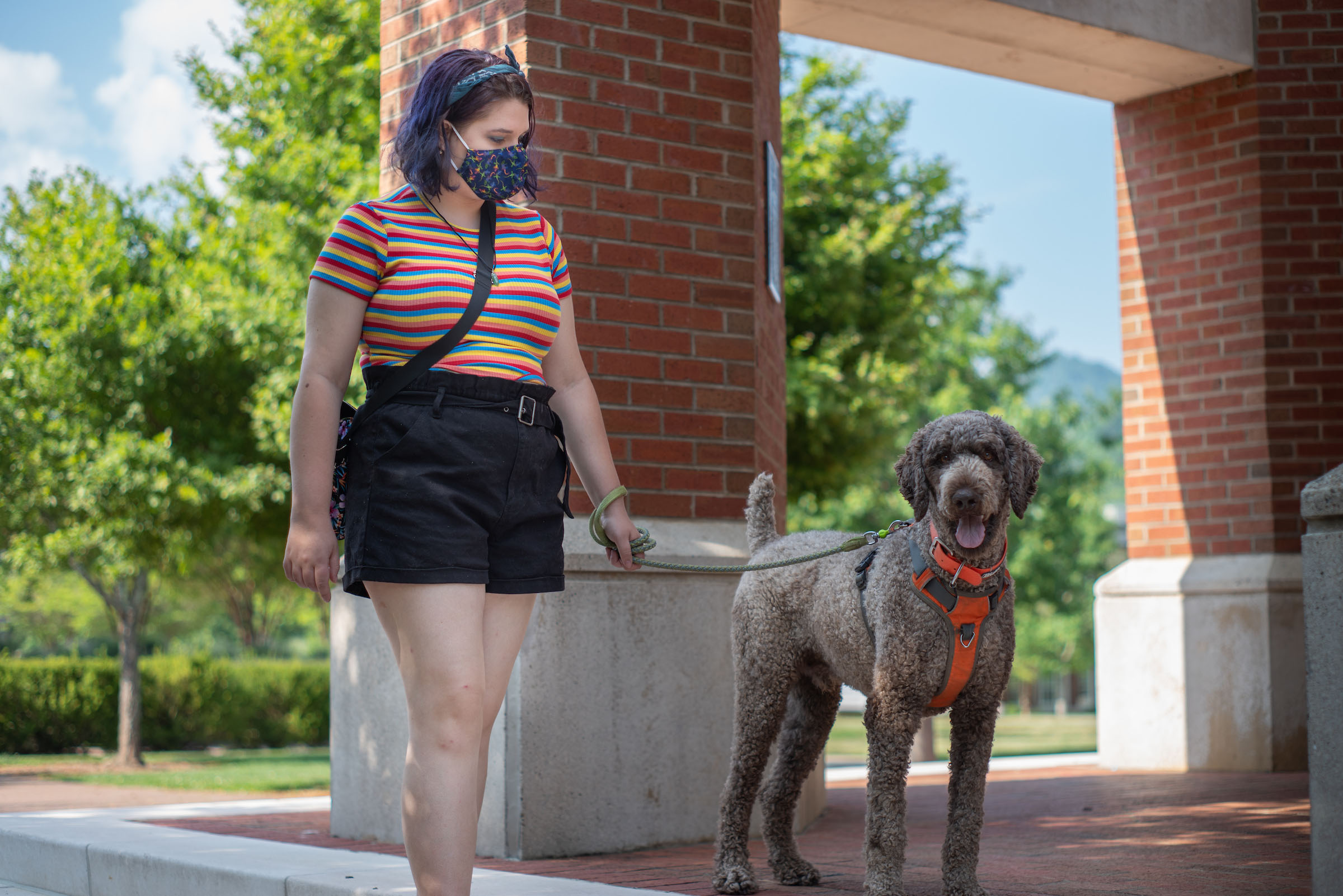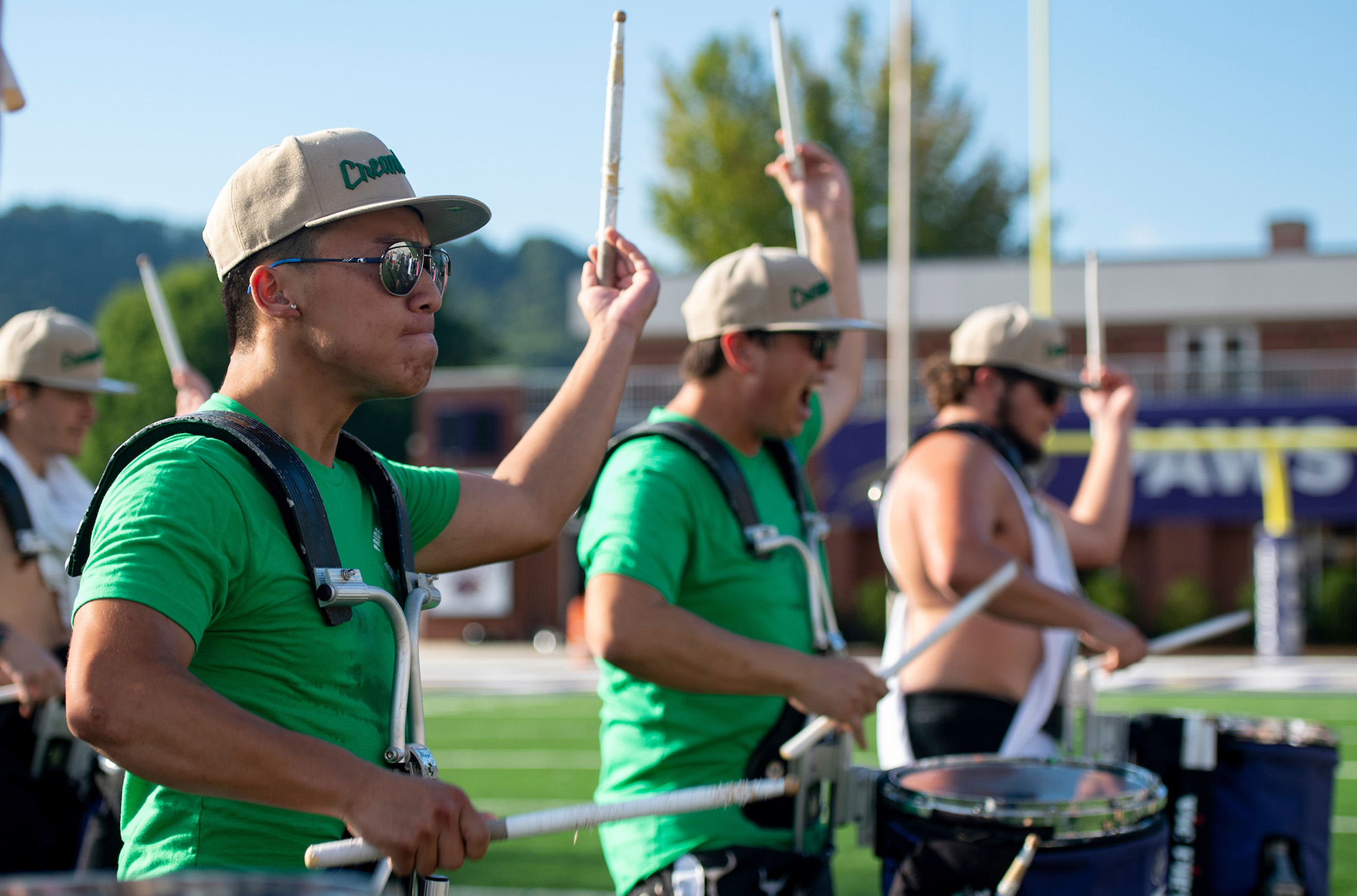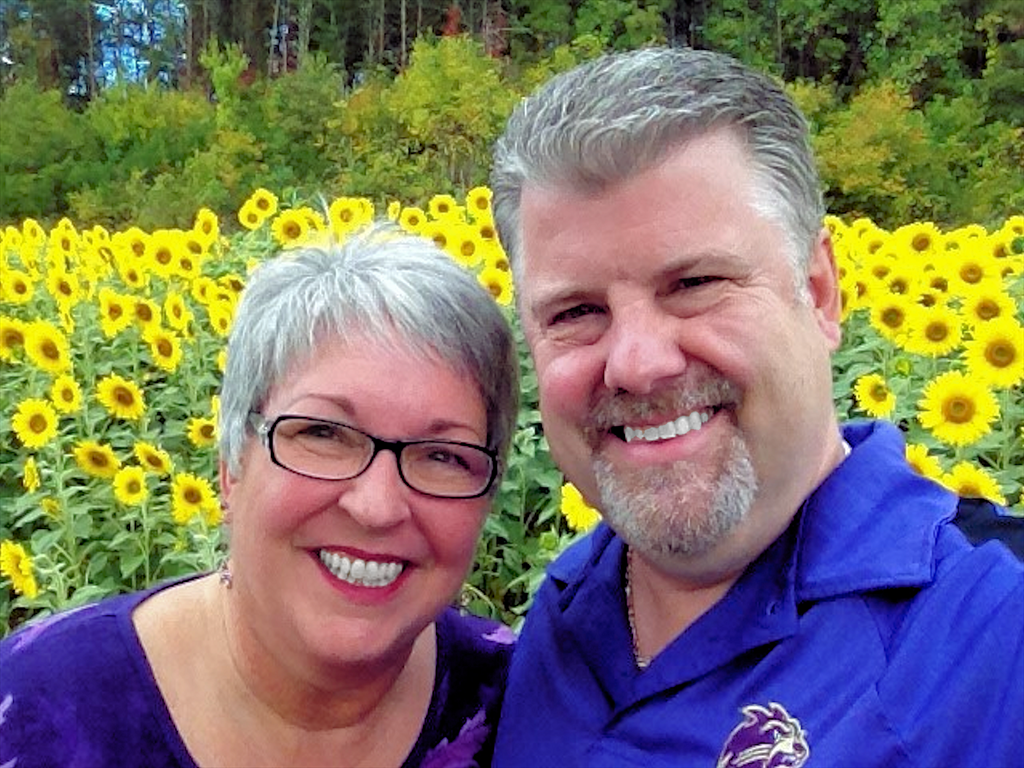When the COVID-19 pandemic hit, college life as WCU students knew it changed drastically. Here's a look at how they had to adapt to a new way of living and learning.
By Melanie Threlkeld McConnell
If there is one thing for sure about COVID-19, it’s that it forced people to adapt.
It ushered in a new era of words, a new vocabulary, new hairdos and new reference
points — “Did we get this cat before or after COVID? I think I read that book pre-COVID,
but I’m not sure.”
Colleges and universities were no different. They pivoted — quickly — to keep students “in” school by going online and then supplied them with PPE, the now familiar abbreviation for personal protective equipment, to reduce the possibility of contracting the virus once they returned to campus. Although the world was isolated, quarantined and locked-down, many people remained in motion to find ways to help others and save themselves from the unpredictable “side effects” of an unpredictable virus.
For many Western Carolina University students, COVID-19 was a double whammy, or even a triple whammy — exacerbating an already stressful time for those leaving home for the first time, or struggling to adapt to the unfamiliar academic demands of higher education, or living far from home. For others, it was no whammy at all, but a time for exploration, reflection and — dare we say — fun?
So how did WCU students respond, react and feel during such an unprecedented time? Everyone has their own pandemic story, whether about fear, overeating, doubt, new hobbies, frustration, illumination, depression, old sweats, unwashed sweats, isolation, boredom or grief. Here are four students willing to share theirs.





